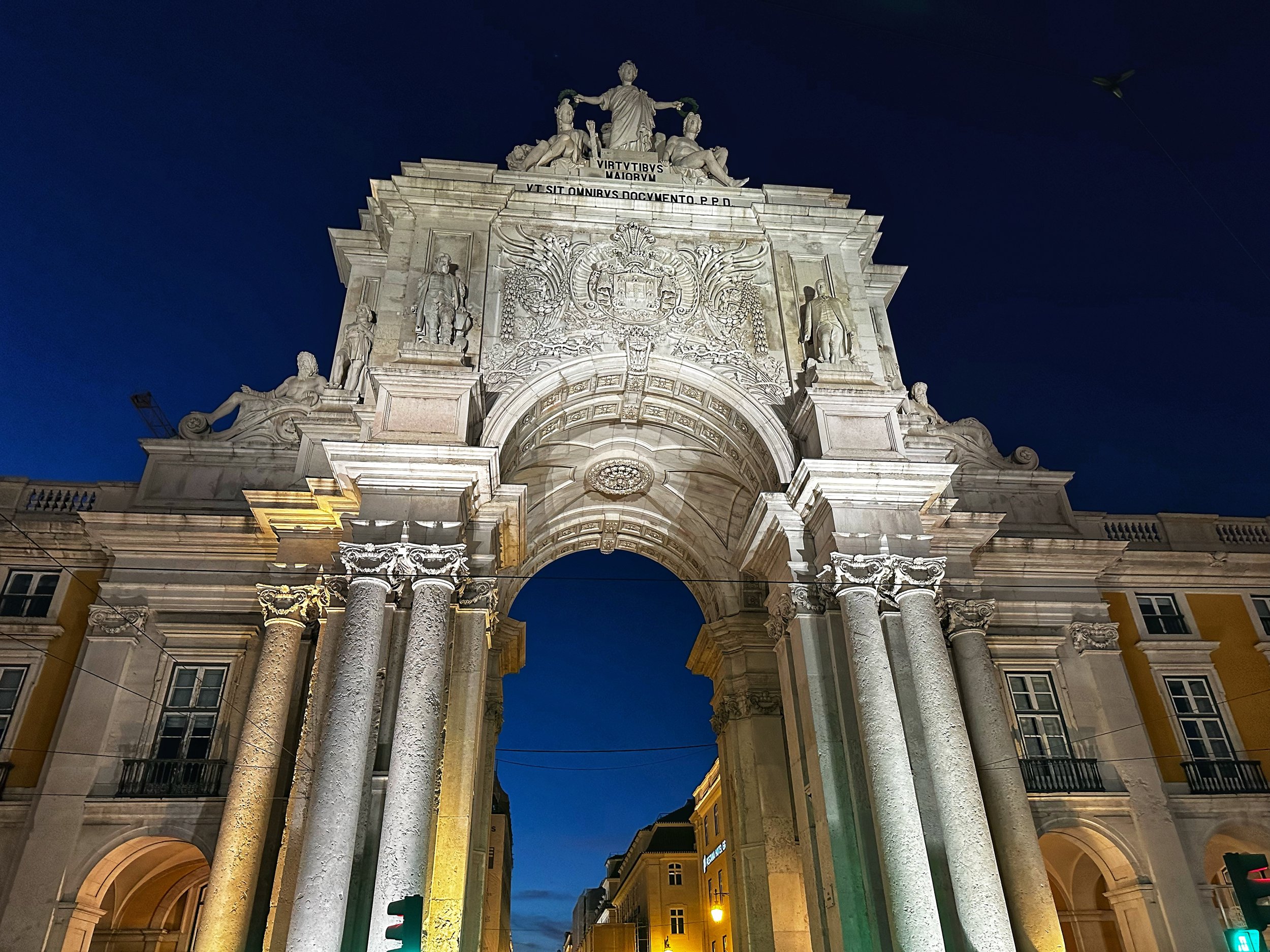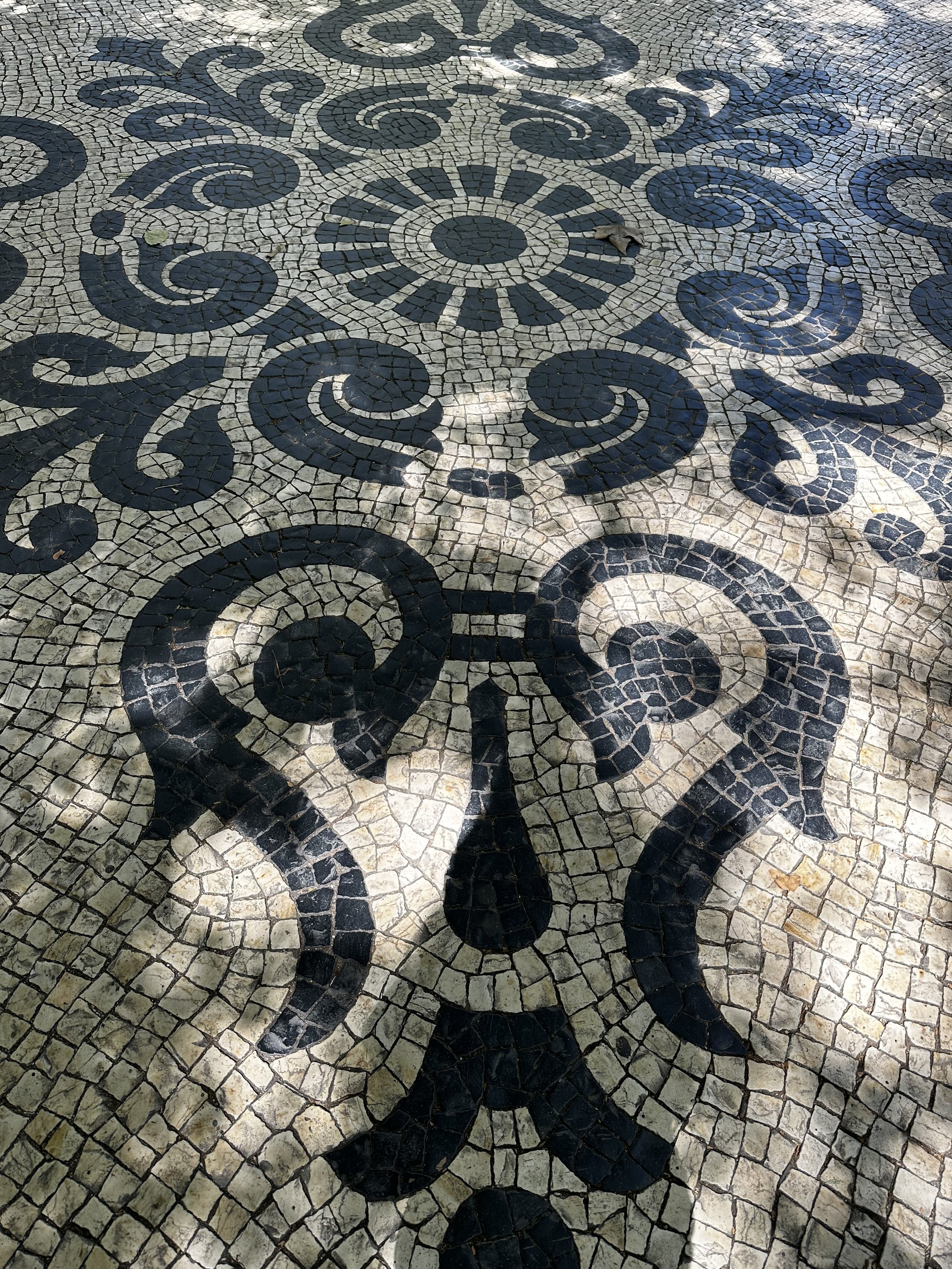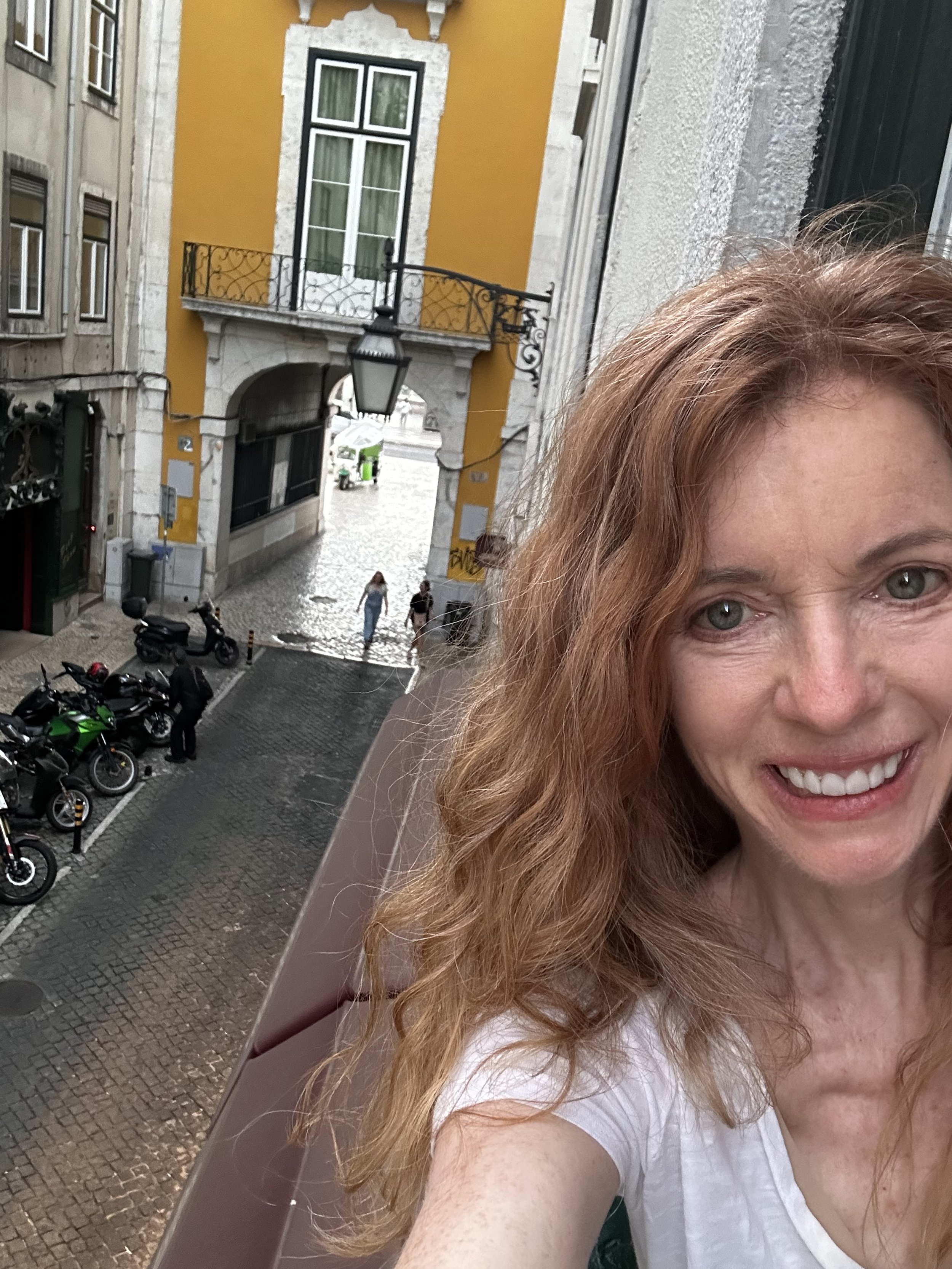A Soft Landing
“We must be willing to let go of the life we planned so as to have the life that is waiting for us.”
It is my fifth day in Lisbon, Portugal, and she has been good to me so far. She has held me gently as I have collapsed a bit into her embrace.
Making a move is never easy. Making a move to an as-yet-undecided location somewhere in the world that you hope you might bump into while traveling, a week after escorting your youngest off to college, after a summer hosting a foreign exchange student in the home you’re vacating, on the heels of an amicable but desperately sad divorce is … exhausting. I have been sleeping late and traipsing for hours on end across the works of art that are Lisbon’s tiled sidewalks, or calçada portuguesa. I move slowly, observing more than interacting at this juncture. I throw open the French doors to the veranda first thing every morning and listen to the city wake up and barrel toward midday on a chorus of strangers clinking glasses and slamming doors and clacking suitcases across cobblestones as they call out “bom dia!” and at 1am I lean out over the filigreed iron rail and wave goodnight to the trash collectors and street sweepers below who begin their labors after everyone else finally turns toward home. The noise of all these people, the anchoring tasks of opening the windows at sunrise and waving goodnight beneath the stars, this allows me the space I need yet to be still and alone without feeling lonely. I rise, I listen, I wave, I rest. Rise. Listen. Wave. Rest. I have felt small sparks of excitement and welcome tides of peace, both interlaid over a well of melancholy that, thankfully, feels a bit less deep than it did before I departed. It is true that this chapter, these travels, aren’t going to transpire as I once imagined they might, but I am accommodating myself to that.
Here is what I know to be true: I love the (now-former) husband I left behind. He loves me. But he could not bring himself to join me, however intermittently, in a world designed to suit my yearnings, and I could not bring myself to stay permanently in a world designed to suit his. Like everyone who knows us, I wish there had been an option to combine our worldviews – for there resides the luscious center space that is the best version of partnership – but alas, that was not an option on offer for us. This will be my forever sadness, but not my undoing. There is much of life to live and it is time to get on with it.
So I will take a night walk to the sea. I will stroll past buildings dressed in Portugal’s iconic blue-and-white azulejo tiles, past darkened storefronts crammed with piles of tinned sardines and dried salt cod, and pause under the Arco da Rua Augusta built to commemorate Lisbon’s efforts to reconstruct a life for herself after a 1755 earthquake + tsumani + fire razed the city. Then I will follow the shoreline to the port where the explorer Vasco da Gama set out in 1497 – after decades of failed expeditions and thousands of lost lives – in search of something he couldn’t yet name and wasn’t assured of finding that turned out to be the path to India. Which, in the end, opened the world to us all.
The legacy of Lisbon and her voyagers reminds me that on the other side of loss and what feels at the time like tragedy, magic just might be waiting.
Photos: The Arco da Rua Augusta on the Praça do Comércio; azulejo tiles which are not named for their typically blue hue (azul is blue in Spanish) but instead comes from the Arabic word al-zulayj which means “little stone”; calçada portuguesa — which is to say, the cobblestone sidewalks and plazas, each sporting one of a handful of authorized patterns; the view from my veranda toward Praça Dom Pedro IV — popularly known as Roccio — Lisbon’s main town square since the Middle Ages.



